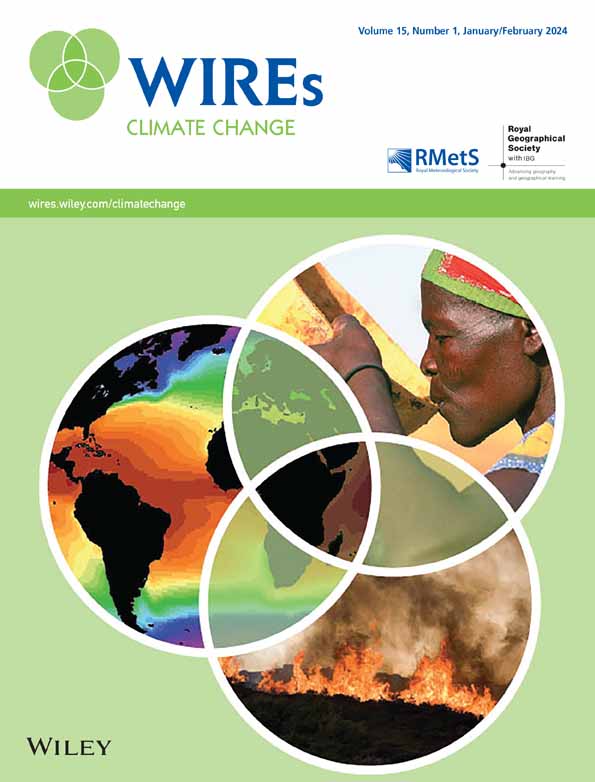The diffusion of climate change adaptation policy
IF 10.3
1区 环境科学与生态学
Q1 ENVIRONMENTAL STUDIES
引用次数: 18
Abstract
Adapting to some level of climate change has become unavoidable. However, there is surprisingly limited systematic knowledge about whether and how adaptation policies have diffused and could diffuse in the future. Most existing adaptation studies do not explicitly examine policy diffusion, which is a form of interdependent policy‐making among jurisdictions at the same or across different levels of governance. To address this gap, we offer a new interpretation and assessment of the extensive adaptation policy literature through a policy diffusion perspective; we pay specific attention to diffusion drivers and barriers, motivations, mechanisms, outputs, and outcomes. We assess the extent to which four motivations and related mechanisms of policy diffusion—interests (linked with learning and competition), rights and duties (tied to coercion), ideology, and recognition (both connected with emulation)—are conceptually and empirically associated with adaptation. We also engage with adaptation policy characteristics, contextual conditions (e.g., problem severity) and different channels of adaptation policy diffusion (e.g., transnational networks). We demonstrate that adaptation policy diffusion can be associated with different mechanisms, yet many of them remain remarkably understudied. So are the effects of adaptation policy diffusion in terms of changes in vulnerability and resilience. We thus identify manifold avenues for future research, and provide insights for practitioners who may hope to leverage diffusion mechanisms to enhance their adaptation efforts.气候变化适应政策的推广
适应某种程度的气候变化已经变得不可避免。然而,令人惊讶的是,关于适应政策是否以及如何扩散以及未来可能扩散的系统知识有限。大多数现有的适应研究都没有明确审查政策扩散,这是同一治理级别或不同治理级别的司法管辖区之间相互依存的政策制定形式。为了解决这一差距,我们从政策扩散的角度对广泛的适应政策文献进行了新的解释和评估;我们特别关注扩散的驱动因素和障碍、动机、机制、产出和结果。我们评估了政策扩散的四个动机和相关机制——利益(与学习和竞争相关)、权利和义务(与胁迫相关)、意识形态和认可(均与模仿相关)——在概念和经验上与适应相关的程度。我们还涉及适应政策的特点、背景条件(如问题严重程度)和适应政策传播的不同渠道(如跨国网络)。我们证明,适应政策的扩散可能与不同的机制有关,但其中许多机制仍然研究不足。适应政策扩散对脆弱性和复原力变化的影响也是如此。因此,我们确定了未来研究的多种途径,并为那些可能希望利用扩散机制来加强适应工作的从业者提供了见解。
本文章由计算机程序翻译,如有差异,请以英文原文为准。
求助全文
约1分钟内获得全文
求助全文
来源期刊

Wiley Interdisciplinary Reviews: Climate Change
METEOROLOGY & ATMOSPHERIC SCIENCES-
CiteScore
20.00
自引率
2.20%
发文量
58
审稿时长
>12 weeks
期刊介绍:
WIREs Climate Change serves as a distinctive platform for delving into current and emerging knowledge across various disciplines contributing to the understanding of climate change. This includes environmental history, humanities, physical and life sciences, social sciences, engineering, and economics. Developed in association with the Royal Meteorological Society and the Royal Geographical Society (with IBG) in the UK, this publication acts as an encyclopedic reference for climate change scholarship and research, offering a forum to explore diverse perspectives on how climate change is comprehended, analyzed, and contested globally.
 求助内容:
求助内容: 应助结果提醒方式:
应助结果提醒方式:


